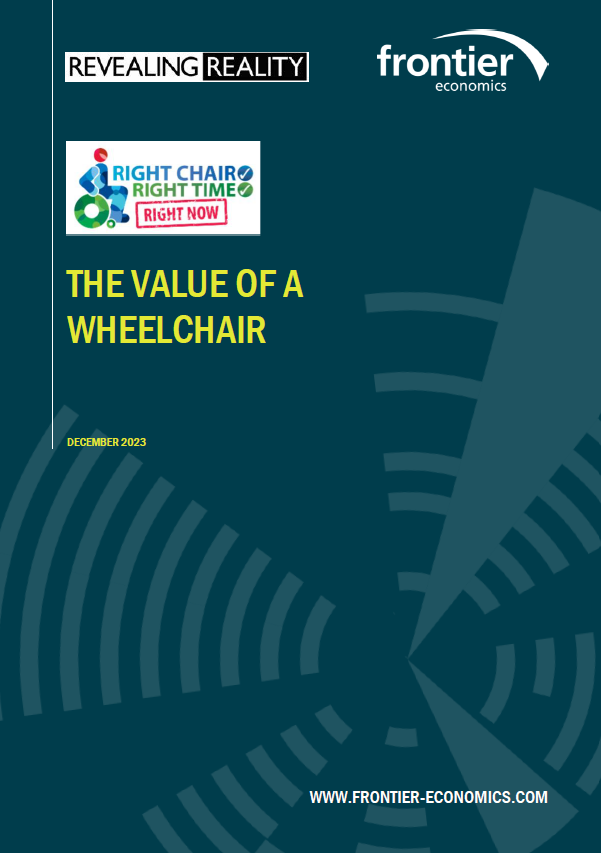Charlie (33) told us that the first time he sat in his new powered wheelchair, his world felt instantly bigger. He suddenly thought about all the places he could now take his dog for a walk, and even mundane tasks like mowing the lawn seemed exciting. Charlie said he felt “useful” for the first time since the accident that left him paralysed. His previous manual wheelchair had been heavy, causing friction sores that left him bed-bound for some time, and a self-propelling one was uncomfortable and exhausting.
Revealing Reality and Frontier Economics were commissioned by Motability and the Wheelchair Alliance to explore the impact of NHS wheelchair provision for wheelchair users in England, through both in-depth qualitative interviews in people’s homes and quantitative modelling to calculate the impacts for individuals and wider society.
Stories like Charlie’s were frequent across our sample of 20 wheelchair users in England, highlighting the value of an appropriately fitted wheelchair: people with an appropriate wheelchair felt it was an ‘extension’ of themselves, while for those without, their wheelchair became painfully noticeable at every turn.
Not only does the wrong wheelchair cause significant physical discomfort, but wheelchair users said they felt most limited by their disability when they were prescribed a wheelchair that didn’t account for more than their ability to get from A to B. They felt that their hopes for work, volunteering or education were overlooked during wheelchair assessments, taking a toll on their independence, financial stability or mental wellbeing. Bulky wheelchairs could hinder access to social spaces, wheelchairs with poor terrain capability limited outdoor activities, and slow, cumbersome equipment could make people feel like a burden to their friends and family.
Navigating and enjoying everyday life shouldn’t be made more difficult by the wrong wheelchair. By shining a light on the challenges wheelchair users face as a result of poor provision, this research hopes to enable commissioners – and others – to see the whole spectrum of needs that an appropriate wheelchair can meet.

